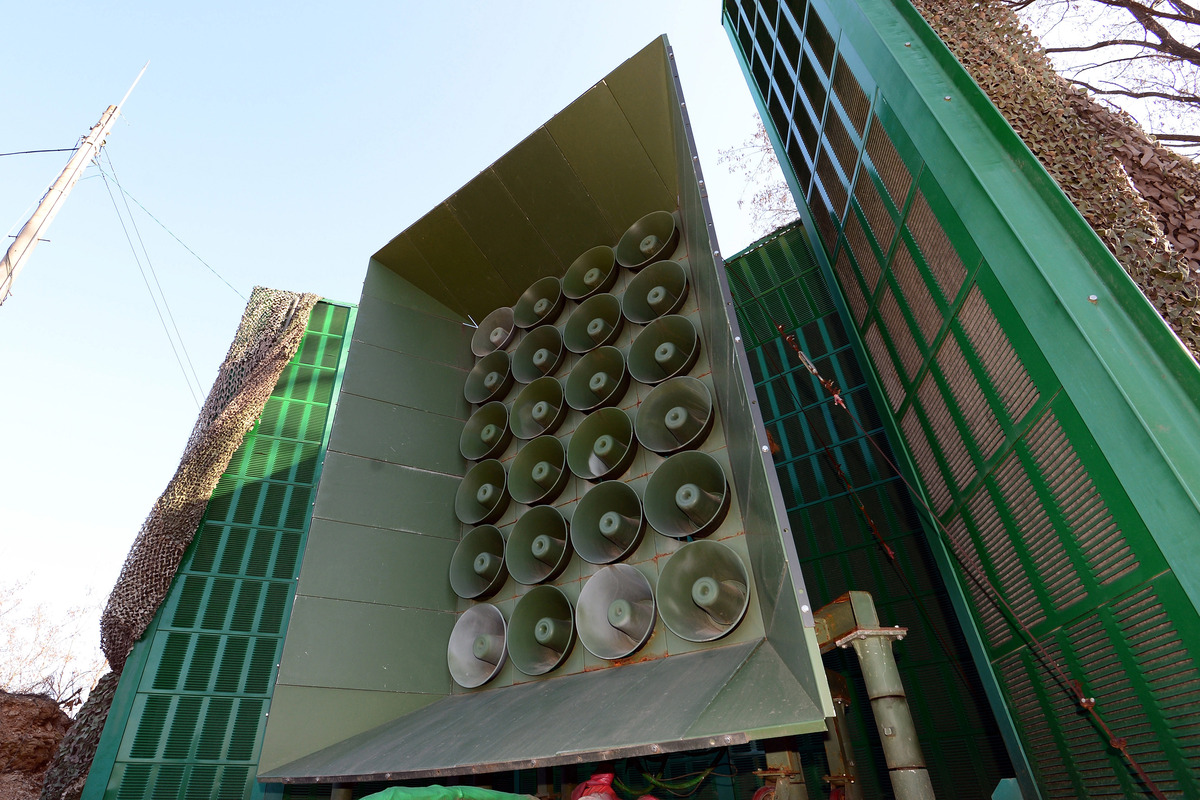Uncommon Knowledge
Newsweek is committed to challenging conventional wisdom and finding connections in the search for common ground.

South Korea is restarting loudspeaker broadcasts of anti-North Korean messaging for the first time in years, Seoul has said, after Pyongyang dropped hundreds of balloons carrying trash on its southern neighbor over the weekend.
Seoul’s Joint Chiefs of Staff said early local time on Sunday that North Korea had launched more than 300 waste-filled balloons at South Korea since Saturday. More than 80 landed in South Korean territory, the most recent round of balloons appearing to contain paper and plastic, domestic media reported.
“The measures we will take may be unbearable for the North Korean regime, but they will send a message of hope and light to the North’s troops and its people,” South Korea’s National Security Council said, according to Reuters.
North Korea has sent waves of balloons carrying waste and trash southward since late May. On June 2, Pyongyang’s Vice Minister of National Defense, Kim Kang Il, said that North Korea had sent 15 tons of waste over the border since May 28 in retaliation for anti-North Korean leaflets being sent into its territory, but would “temporarily” pause the campaign.
North Korea warned it would resume its balloon campaign if more leaflets from South Korea passed over onto its soil.
On Thursday, activist group Fighters for Free North Korea said they had sent 200,000 anti-Pyongyang leaflets and USB sticks with popular music over the border in a number of balloons.
Many of the balloons launched over the weekend did not land on South Korean territory, Seoul officials said. The country’s residents have been warned to stay away from the balloons and report them to local authorities.
Spats using balloons have been ongoing for years, and Pyongyang has threatened to attack and destroy loudspeakers stationed along the border. North Korea has described the broadcasts as “psychological warfare.”
Seoul halted the broadcasts directed across the heavily militarized border in 2018 during a thaw in tensions on the peninsula.
Already-fraught relations between the neighboring countries have deteriorated in recent months as North Korea draws closer to Russia while pushing forward with missile testing and nuclear weapons development programs. South Korea is a firm ally of the United States, a stance that deeply angers North Korea.
“We make it clear that the responsibility for any escalation of tension between the two Koreas will lie entirely with North Korea,” South Korea’s Presidential Office said, according to Seoul’s Yonhap news agency.
South Korea’s broadcasts have reportedly reached up to 15 miles into its northern neighbor.
Newsweek is committed to challenging conventional wisdom and finding connections in the search for common ground.
Newsweek is committed to challenging conventional wisdom and finding connections in the search for common ground.